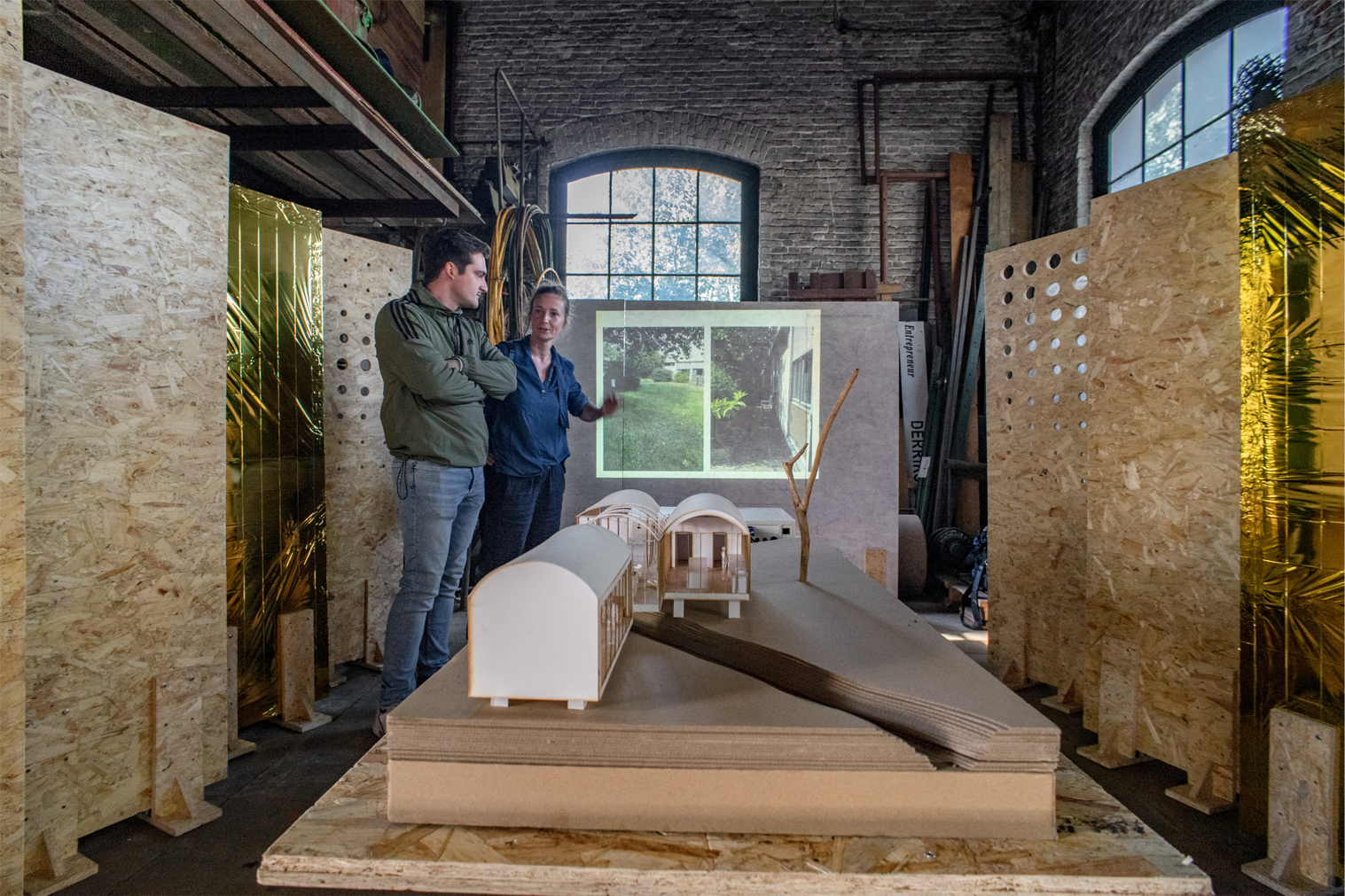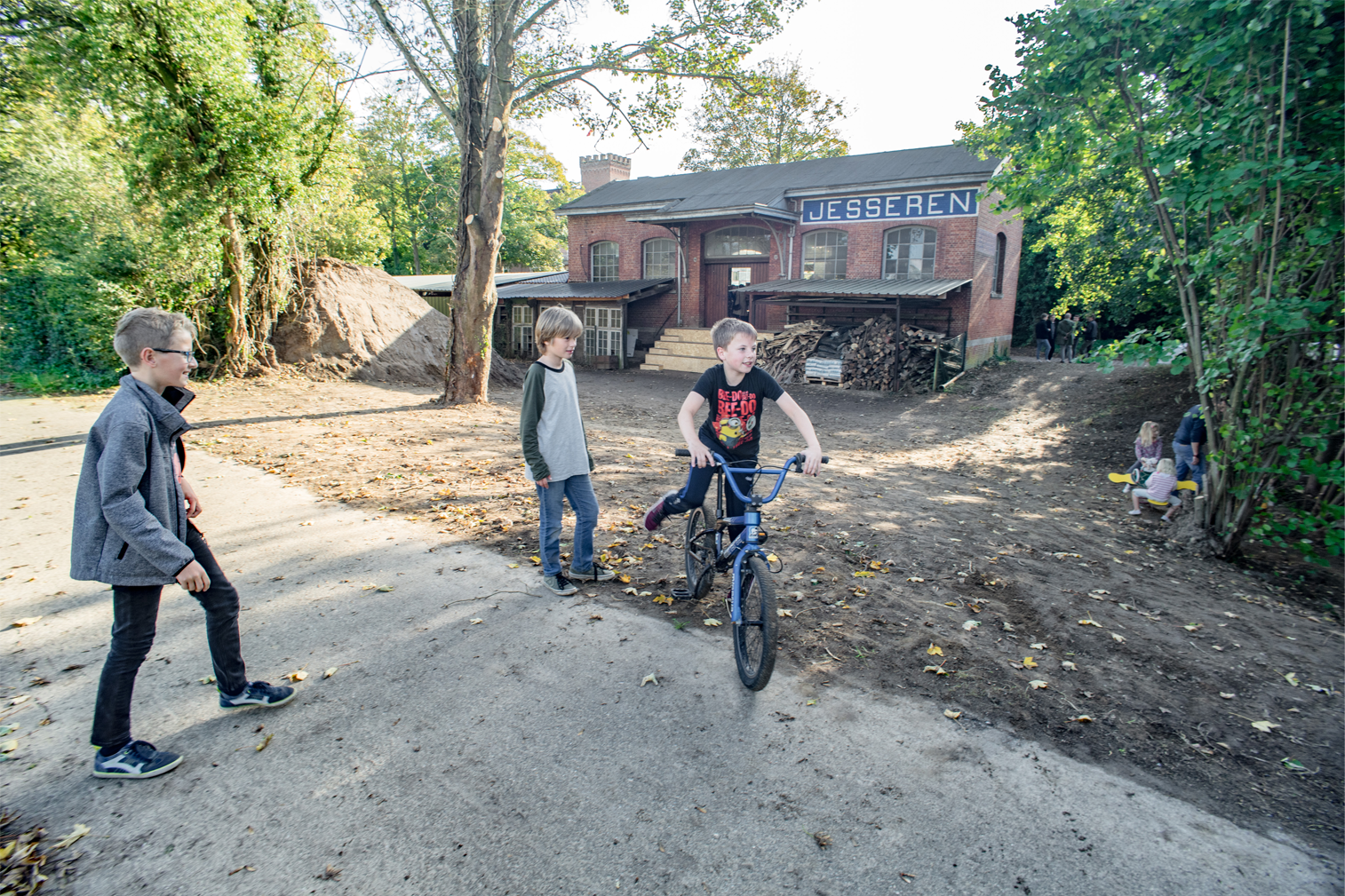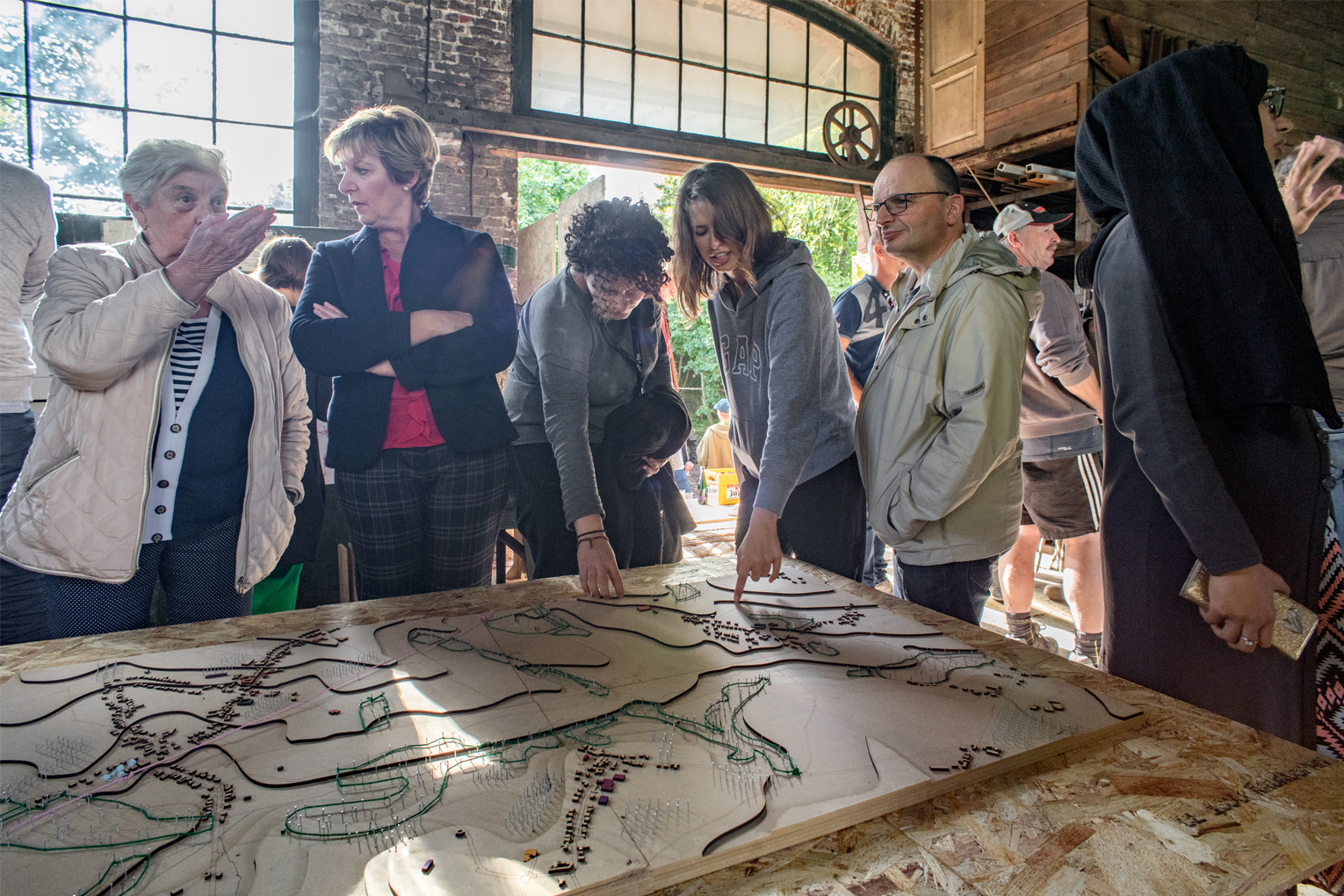TOWARDS A PUBLIC DEBATE ON FLEMISH SPATIAL POLICY - TRANSLATING THE POTENTIAL LEVERAGE OF THE FRUIT TRACK FOR THE REGION OF HASPENGOUW
The aim of this project was to publicly debate future visions for the recently renewed plan for spatial policy for Flanders (BRV – Beleidsplan Ruimte Vlaanderen). This plan starts from a list of principles for spatial development, as an answer to the mismatch of zoning plans and current reality. The plan consists of strategic principles for spatial development (e.g. increase of spatial efficiency, multifunctional use or strengthening of resilient blue-green networks). These principles are written in generic terms. The aim of this project was to design and initiate a public debate to translate these principles in a tangible way in everyday life in rural contexts. The project was set up in two tracks: (1) an exploratory research by design track, based on studio-exercises with both bachelor and master students in Architecture and Interior Architecture at UHasselt; and (2) a coalition focused track, based on multi-stakeholder workshops with local actors, local and regional organisations and administrators. In both tracks concrete ideas, future visions and proposals were developed, exchanged and debated to translate the generic policy principles in a workable format and language. A former railway track, ‘the fruit track’ formed the backbone of this project. The fruit track is in itself a heritage infrastructure, a space for biodiversity, a left-over space, designated as a zone for nature with bits that are informally appropriated as well as a constructed cycle path. This rural context was the test-bed for the translation process between policy makers and inhabitants concerning their understanding of and practices around these new principles for spatial policy and collaboration.
| University/Design-Architectural Studio | UHasselt |
|
Project lead |
UHasselt |
|
Partners |
a2o, provincie Limburg, department omgeving, Vlaanderen |
|
Country/region |
Haspengouw |
|
Keywords |
Regional development, public debate, spatial policy, landscape, heritage |



.jpg)